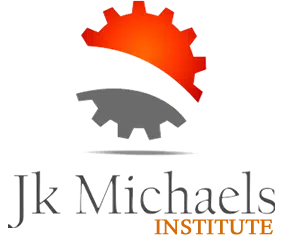AGILE PROJECT MGT PMI-ACP
Agile Project Management PMI-ACP course is the initial course in an overall learning path designed to prepare someone to achieve the PMI-ACP® certification, and develop into a high-impact Agile Project Management role. This course is part of the PMI-ACP® Agile Project Management series. The PMI-ACP, also known as the PMI Agile Certified Practitioner, is one of the most well-known and rapidly expanding project management qualifications worldwide.
Overview
Curriculum
Curriculum
- 3 Sections
- 43 Lessons
- 3 Days
Expand all sectionsCollapse all sections
- Level 1 (33% of total exam questions)18
- 1.1Active listening
- 1.2Agile Manifesto value and principles
- 1.3Assessing and incorporating community and stakeholder values
- 1.4Brainstorming techniques
- 1.5Building empowered teams
- 1.6Coaching and mentoring within teams
- 1.7Communications management
- 1.8Feedback techniques for product (e.g. prototyping, simulation, demonstrations, evaluations)
- 1.9Incremental delivery
- 1.10Knowledge sharing
- 1.11Leadership tools and techniques
- 1.12Prioritization
- 1.13Problem-solving strategies, tools, and techniques
- 1.14Project and quality standards for Agile projects
- 1.15Stakeholder management
- 1.16Team motivation
- 1.17Time, budget, and cost estimation
- 1.18Value-based decomposition and prioritization
- Level 2 (12% of total exam questions)12
- 2.1Agile frameworks and terminology
- 2.2Building high-performance teams
- 2.3Business case development
- 2.4Colocation (geographic proximity/distributed teams)
- 2.5Continuous improvement processes
- 2.6Elements of a project charter for an Agile project
- 2.7Facilitation methods
- 2.8Participatory decision models (e.g., input-based. Shared collaboration, command)
- 2.9PMI-ACP™s Code of Ethics and Professional Conduct
- 2.10Process analysis techniques
- 2.11Self-assessment
- 2.12Value-based analysis
- Level 3 (5% of total exam questions)13
- 3.1Agile contracting methods
- 3.2Agile project accounting principles
- 3.3Applying new Agile practices
- 3.4Compliance (organization)
- 3.5Control limits for Agile projects
- 3.6Failure modes and alternatives
- 3.7Globalization, culture, and team diversity
- 3.8Innovation games
- 3.9Principles of systems thinking (e.g. complex adaptive, chaos)
- 3.10Regulatory compliance
- 3.11Variance and trend analysis
- 3.12Variations in Agile methods and approaches
- 3.13Vendor management
FAQs
An ideal candidate for PMI-ACP certification is someone who possesses a baseline knowledge of Agile principles, general project management experience, and a desire to broaden their Agile knowledge. This includes professionals from various backgrounds, such as project managers, business analysts, and Agile trainers, who want to enhance their skills in Agile project management and increase their marketability in the job market.
To secure PMI-ACP certification, you need to fulfil certain educational prerequisites:
a secondary degree or equivalent
complete 21 hours of training in Agile practices
12 months of general project experience within the last 5 years. A current PMP® or PgMP® will satisfy this requirement but is not required to apply for the PMI-ACP.
have a minimum of 8 months of Agile project experience within the past three years.
Features
- JK Michaels is a PMI accredited ATP(Authorized Training Partner)
- Earn 30 PDUs with Practical, live instructor led sessions
- Ace the exam with 30 day, 60 day study plan by experts 2000 Free exam simulation question bank
- Introduction to predictive and Agile software(microsoft project +JIRA) Poject Leadership Quotients Assessment
- Regular monthly webinars,revisions and exam support.
- Action-oriented learning through case studies,role plays ,games e.t.c






